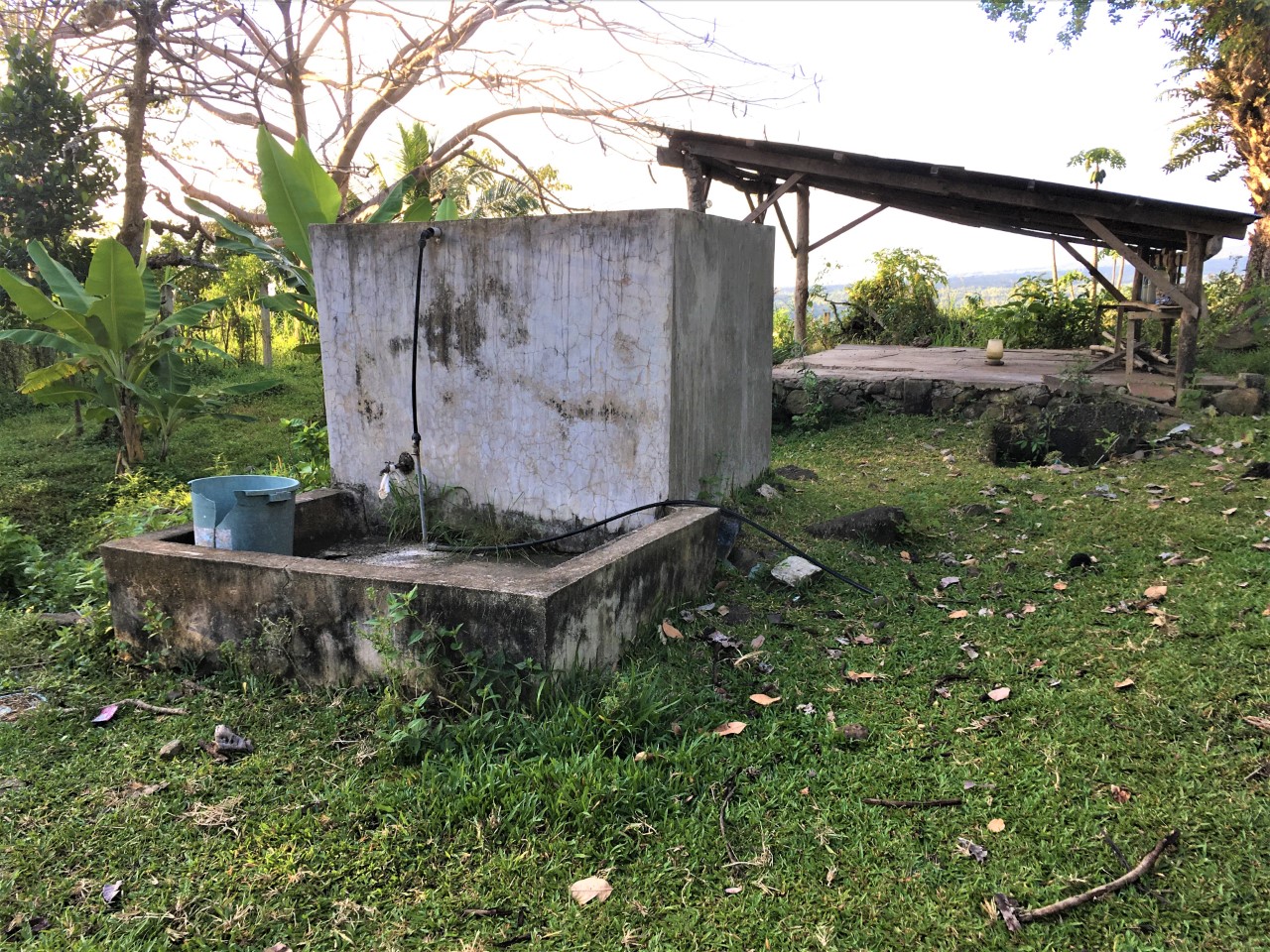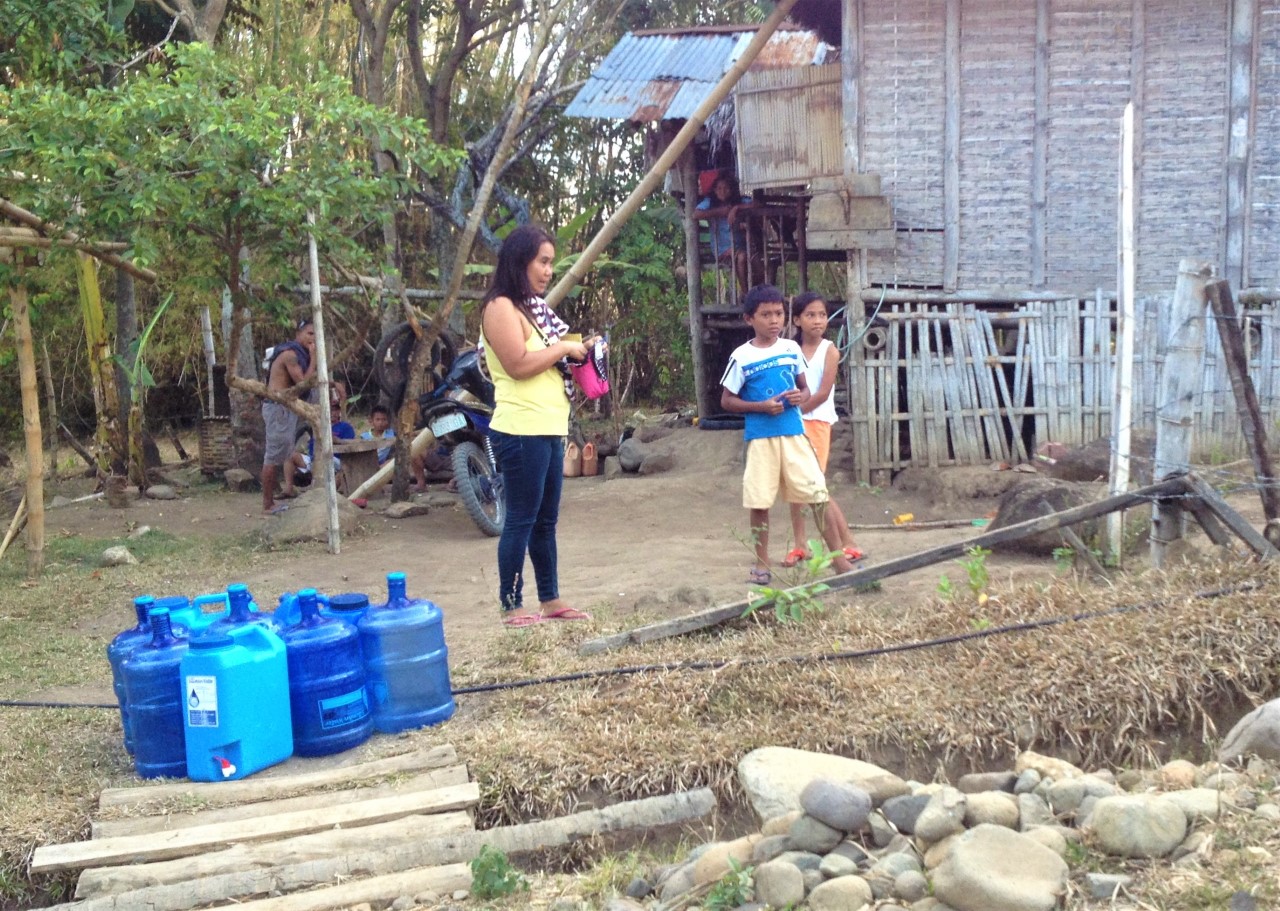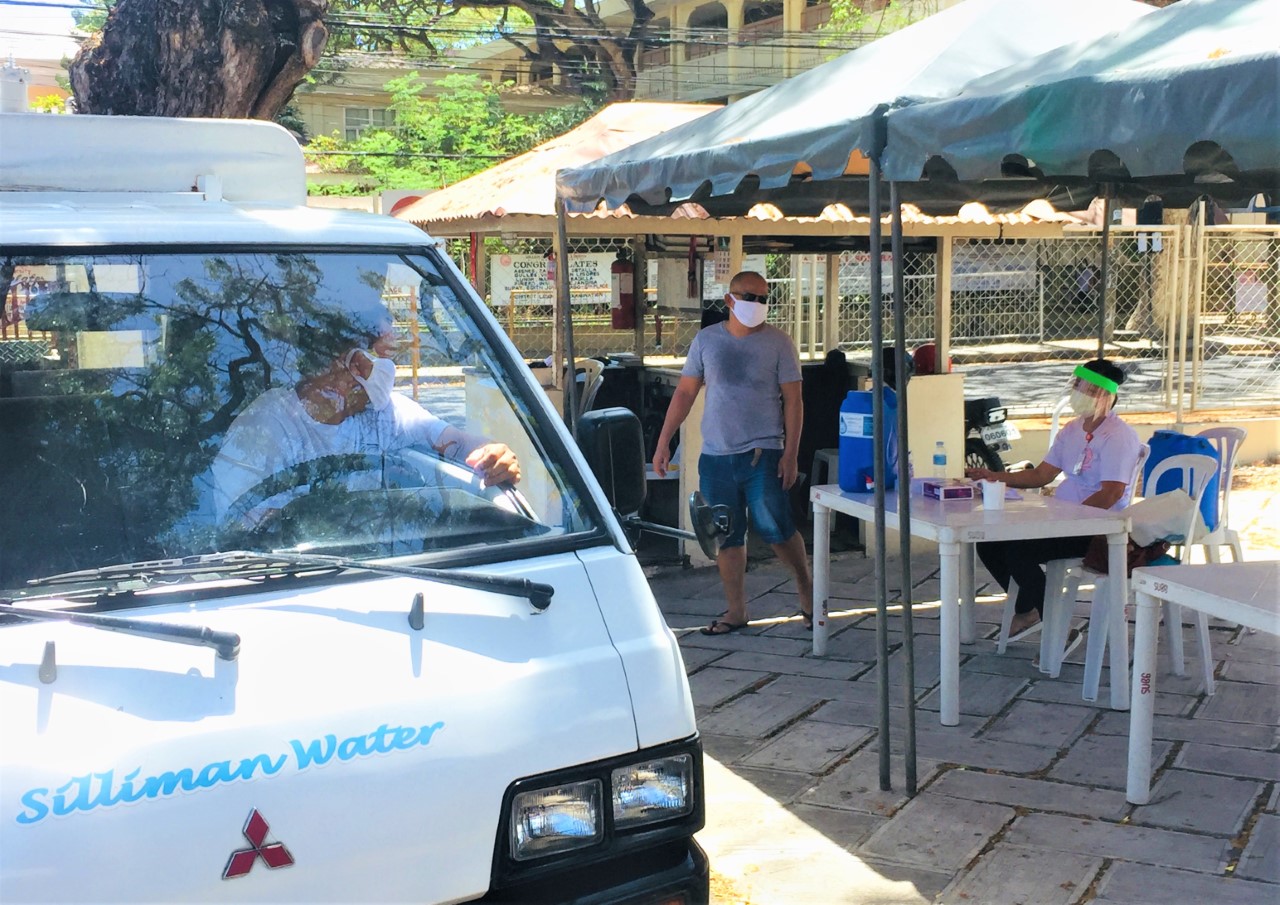A Letter from Cobbie and Dessa Palm, serving in the Philippines
April 2020
Write to Cobbie Palm
Write to Dessa Quesada-Palm
Individuals: Give online to E200393 for Cobbie and Dessa Palm’s sending and support
Congregations: Give to D506901 for Cobbie and Dessa Palm’s sending and support
Churches are asked to send donations through your congregation’s normal receiving site (this is usually your presbytery)
These are uneasy and unpredictable times. The world is searching for a way out of this perilous situation that is coming ever closer. In this time of COVID-19, many critical decisions need to be made. This morning I am in the Silliman Water Ministry office in Dumaguete, a small city in the central region of the Philippines. I feel the burden of needing to be decisive about an action that needs to be taken about a water project that provides clean drinking water to communities in need.
The month of March is the beginning of the hot/dry season. The water in the square cement water tanks that collect water in the mountains will soon be depleted. These tanks collect and hold the water from springs and rainfall and distribute the water throughout the small villages in the mountains that the city water supply is unable to reach. There might be 4 – 5 cement water tanks in a single village on the mountainside. In the dry season, the lack of flowing water in and through the boxes can lead to bacteria build-up. The traditional process of boiling water is often not sufficient to disinfect the water so that it is safe to drink.
The water project personnel in the office today are torn. The communities are expecting and waiting for the clean drinking water that the project regularly provides. But Silliman University, which hosts the project, has canceled all academic classes. Except for a skeletal force of essential programs, all activities sponsored by Silliman have been ordered to cease until further notice.
Silliman Water Ministry Project was not initially one of the projects that was allowed to continue to operate. The burden now sat on my shoulders. As the project manager, I had to make a difficult decision. Would I abide fully with the University’s mandate and leave the communities without drinking water, or would I find a way to continue to serve the communities with water?
I imagine this dilemma is being felt all over the world. Serving and ministering in mission has suddenly changed, yet the need in our communities has remained the same. Last Sunday, many churches creatively followed the Memorandum Order from the Office of the Philippine President, which prohibits all mass gatherings. The Catholic Bishops Conference of the Philippines, the largest denomination in the Philippines, has suspended all religious activities and encouraged the faithful to stay home and pray for healing. The Protestant churches, including our own Silliman University Church, dissuaded members from coming to Church and instead encouraged members to stay home and listen to the service online. These decisions are heartbreaking for the churches because they are aware that in times like these, worshipers need the comfort and assurance of being in close communion with God more than ever.
I am watching dreams collapse around me. A neighbor, seeing the enormous growth of tourism in this area, mainly from our Asian neighbors, purchased a new tourist van to ferry people from the airport to the hotels. The van cost much more than the family had saved, but they were able to get a car loan and purchase the van. For several months the plan worked in their favor. They were able to earn more than enough money to pay the monthly amortization. It was a dream come true. But a few days ago, when we met together, I learned that few people required their services any longer. They have reluctantly developed a new plan. It is to put the van up for sale. This is just one example of the reality facing so many at this difficult time of COVID-19.
In the face of such sad stories, I am also watching resilience emerge. Families who find themselves suddenly unemployed due to the forced temporary closure of their places of work are taking to the streets in the early mornings and late afternoons. They are setting up little coffee tables of baked goods, pastries, coffee, tea, and other items along the roadway for the public to purchase. This gives them a little income to hold them over in these difficult times. The public is aware of the need of these vendors. Everyone shares their resources by patronizing them. In this small way, the community is redistributing financial resources to those in need. This is not a comprehensive long-term solution, but it is uplifting to witness small initiatives emerging.The day is almost over, I am still burdened with the question on my shoulders, do we stay open and come back tomorrow to serve the communities in need who depend on us or do we cancel all operations? The advisory is on my mind as I call the staff together to listen to their voices. Tony, the newest member of the staff took out his cellphone and scrolled down, and said, “I am scared of the situation we are all in. COVID-19 is real and present here today.” Pausing, I was sure he would continue with the words “let us go home, stay home and be safe.” But instead it was a God moment for all of us. He went on to say, “I am here today, and I will be here tomorrow and the next day because we are a mission, and I have been inspired by this quote from Pope Francis.” And he began reading to us all from his cellphone: “Rivers do not drink their own water; trees do not eat their own fruit; the sun does not shine on itself; flowers do not spread their fragrance for themselves. Living for others is the rule of nature. We are born to help each other, no matter how difficult it is.”
I heard the mumbling of affirmation from the others, “yes, we agree.” In mission, we do not live for ourselves alone. These inspirational words reminded us that the willingness, the courage, and the risk to live for others as Christ lived and taught is fundamental to the calling into Christ’s mission. As the Gospel of John 22:39 states, “You shall love your neighbor as yourself.” The Gospel of Matthew 15:13 affirms, “No one has greater love than this, to lay down one’s life for one’s friends.” In times like these, it is important to be reminded of these fundamental principles of Christ’s Mission.
After several meetings with the University leadership, the University is now convinced that Silliman Water Ministry must be included in the skeletal force of essential programs that must continue. Guided by caution and care and keeping in mind the protocols of the PC(USA) for all Mission Personnel, Silliman Water Ministry continues to serve communities in need of clean drinking water. This ministry is recognized as an essential service and continues to serve the mountain communities. In addition, this ministry has volunteered to serve those on the frontline at the University to keep the community safe and to mitigate the effects of COVID-19.
We can do all of this because of the dedication and courage of the mission team here. We can minister in this way because of your prayers and continued support of the ministry of the PC(USA) that allows me to provide clean water to communities in need. I am able to be here because you are there trusting and supporting the mission of the Church, and my work as a small part of Christ’s great mission in this part of the Philippines. Thank you for your unending concern and dedication to our mutual mission.
In God’s Service,
Cobbie Palm
![]() You may freely reuse and distribute this article in its entirety for non-commercial purposes in any medium. Please include author attribution, photography credits, and a link to the original article. This work is licensed under a Creative Commons Attribution-NonCommercial-NoDeratives 4.0 International License.
You may freely reuse and distribute this article in its entirety for non-commercial purposes in any medium. Please include author attribution, photography credits, and a link to the original article. This work is licensed under a Creative Commons Attribution-NonCommercial-NoDeratives 4.0 International License.


